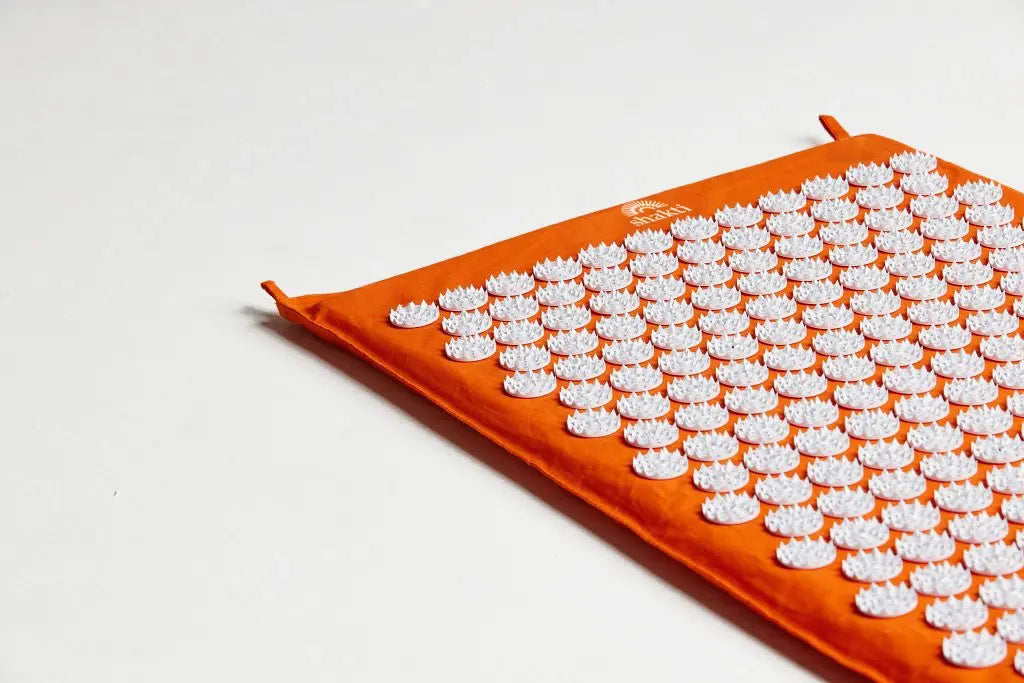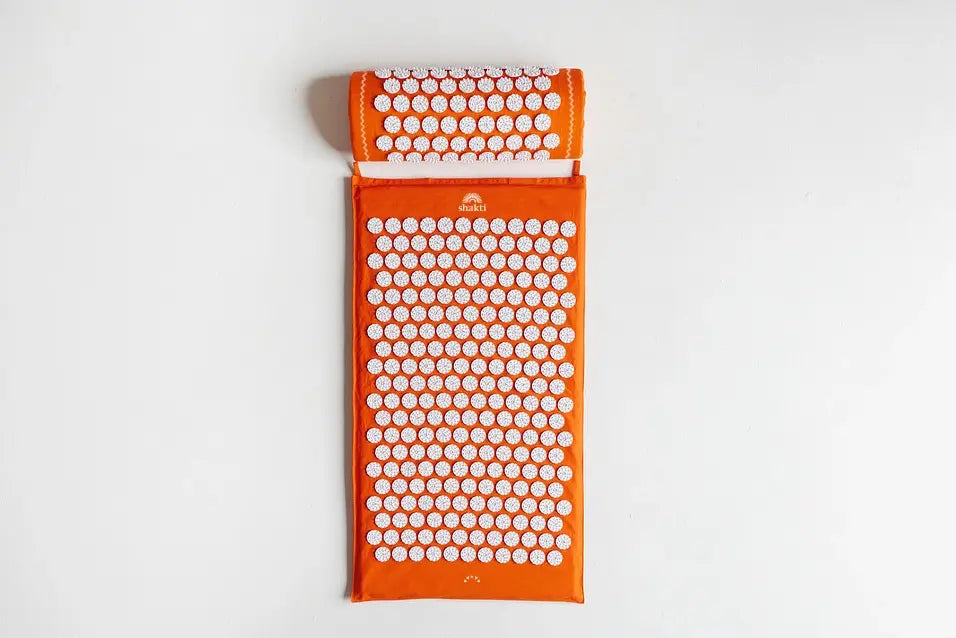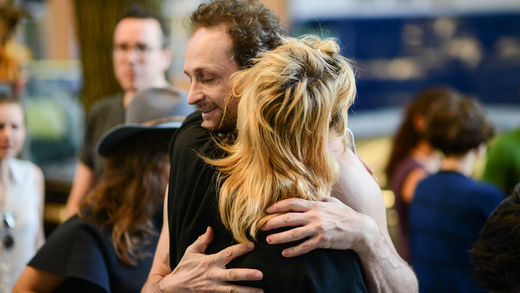"I'm constantly afraid that something bad will happen." Can you say that about yourself? Then you should definitely read on, because in the following article we explain everything you need to know about anxiety. Often taboo, anxiety is unfortunately a silent companion that haunts many people throughout their everyday lives. Whether it's the sudden panic when shopping, the oppressive feeling before an important meeting or the tormenting worries at night - anxiety can haunt us in the most diverse moments of our lives. But how do these anxiety states, sometimes even panic attacks, come about? We shed light on the medical background and show you what goes on in your body and brain when anxiety has you in its grip. We go into detail about the various symptoms and, of course, offer you effective strategies for dealing with anxiety. With this in-depth understanding, you can learn to confront your anxiety and enjoy your life to the full again.
Content
2. pathological anxiety explained medically
3. anxiety: classifying symptoms correctly
4 What to do in case of anxiety?
5. in focus: averting anxiety at night
What is fear actually?
Fear is a natural reaction of our body to potential danger. It is one of the most basic human emotions and has an important protective function. In dangerous situations, fear ensures that we are alert and can react quickly. However, sometimes anxiety occurs for no apparent reason or is excessive - this is known as anxiety.
What exactly are anxiety states? They are more intense and long-lasting than normal feelings of anxiety. They can occur without a specific trigger and have a significant impact on daily life. Those affected often feel permanently tense, anxious and worried, which severely restricts their quality of life and affects many aspects of life - from work and social relationships to everyday activities.
Anxiety disorders can be divided into several categories. The three most important are phobias, panic disorders and generalized anxiety disorder. Phobias relate to specific objects, such as spiders, flies or syringes, or (social) situations. Panic disorder is a particularly severe form of anxiety. Here, sufferers experience recurring, unexpected panic attacks, i.e. sudden, intense waves of fear that trigger strong physical reactions such as a racing heart, sweating, trembling and shortness of breath. Even if panic attacks usually only last a few minutes, they often leave the person feeling deeply insecure and very afraid of further attacks - a vicious circle. The third form, generalized anxiety disorder, is characterized by constant worry and anxiety without a specific trigger, which leads to restlessness, sleep disorders and muscle tension.
Medical explanation of pathological anxiety
In everyday life, anxiety manifests itself in many forms, such as nervousness before a presentation or worry about loved ones. Such fears are normal, but if they occur for no clear reason or are disproportionately strong, they can make life more difficult. The question then arises: where does this anxiety come from?
In this context, some medical backgrounds are interesting, for example the consideration of hormonal influences. The stress hormone cortisol in particular is known to trigger anxiety and tension when levels are high. People who are under chronic stress often have permanently elevated cortisol levels, which can lead to persistent anxiety. There are therefore anxiety states that are hormonally induced, including menopausal anxiety. Women experience strong hormonal fluctuations during this phase of life, in particular a decrease in oestrogen and progesterone. These hormones have a calming effect on the brain and their decline can lead to increased nervousness and anxiety.
Nutrient deficiencies such as potassium deficiency and iron deficiency can also promote anxiety. How can a potassium deficiency trigger anxiety? Potassium is important for the electrical activity of nerve cells. Low potassium levels can cause symptoms such as muscle cramps, fatigue and cardiac arrhythmia, which are often associated with anxiety and nervousness. And what does an iron deficiency have to do with anxiety? Iron is crucial for the production of hemoglobin, which transports oxygen in the blood. A lack of iron can lead to anemia, which is characterized by fatigue, weakness and cognitive impairment. These physical symptoms can easily be confused with or exacerbated by anxiety disorders.
Chronic illnesses such as diabetes and neurological disorders such as migraines can also lead to anxiety, but also in an indirect way, i.e. through the similar symptoms or through the constant pain and unpredictability of the symptoms, as is the case with fibromyalgia or irritable bowel syndrome, for example. We will not discuss serious psychological problems such as PTSD or depression in detail here, as they generally require professional treatment. In the following section, we will now focus on the symptoms of anxiety, as a comprehensive understanding of these helps with diagnosis and treatment. In this way, practical strategies for coping in everyday life can be developed.
Anxiety: classifying symptoms correctly
"Do I have an anxiety disorder?" You may have asked yourself this question when certain symptoms occur. Anxiety can manifest itself in many different ways and affects both the body and the mind. Symptoms can vary in intensity and frequency, but almost always have a significant impact on the daily life and well-being of those affected. Here is a brief overview for you:
1. physical symptoms
People with anxiety often report a rapid or irregular heartbeat. This palpitations can be accompanied by stabbing or squeezing chest pains, which can easily be mistaken for symptoms of a heart attack. A feeling of shortness of breath or not getting enough air is also common. This can lead to hyperventilation, which further increases anxiety. Excessive sweating for no reason, trembling or muscle twitching are other physical symptoms that can occur in connection with anxiety. Many sufferers also report nausea, abdominal pain, diarrhea or constipation. Sometimes they also feel dizzy or light-headed, which can lead to instability and additional worries. These symptoms can be particularly distressing and have a significant impact on daily quality of life.
2. psychological symptoms
If you suffer from anxiety, you probably often worry excessively about everyday events and problems. These worries are usually disproportionate to the actual situation. The resulting constant feeling of nervousness and restlessness can cause those affected to be constantly tense. Insomnia, difficulty falling asleep or sleeping through the night and nightmares are common side effects. In addition, people with anxiety react more irritably to everyday stressors and are more easily annoyed or angry. It is also not uncommon for sufferers to report difficulty concentrating and a "blank mind" or the feeling that their thoughts are racing.
3. emotional symptoms
Intense, sudden attacks of anxiety and panic usually occur without a recognizable trigger. These panic attacks can be so severe that those affected feel like they are losing control or even dying. They are characterized by a feeling of being overwhelmed and helpless in the face of daily demands or their own fear. Those affected often feel lost, as if they are completely at the mercy of a huge ocean with immense waves. Anxiety often goes hand in hand with depressive moods or even full-blown depression. The constant burden of anxiety can lead to a general feeling of hopelessness and sadness.
4. behavioral symptoms
People with anxiety tend to avoid situations or places that could trigger their anxiety. This can severely restrict social life, work and other important activities. Excessive vigilance against potential dangers or threats, even if they are not realistic, is typical. Those affected are constantly on guard and are hypersensitive to stimuli. In some cases, they even develop ritualized behaviors or compulsive actions to control their anxiety. Another important aspect of the medical view of anxiety is the vicious circle that often develops. As we have already mentioned, anxiety can trigger physical symptoms such as palpitations, sweating and trembling. These are often misinterpreted and then further intensify the anxiety, leading to even more intense physical reactions. A better understanding of the physical causes and symptoms helps to break this vicious circle.
What to do in case of anxiety?
Anxiety has a significant impact on daily life, that much is unfortunately clear. The good news is that there are numerous tried-and-tested strategies and tips that can help you deal with these feelings. We have put together the 10 most promising ones for you. These everyday measures are easy to implement and (used regularly) very effective. However, the same applies here: Everyone is different. We therefore recommend that you try out all the suggestions one by one for a few days. This way, you will find out which combination of approaches works best for you personally.
- Mindfulness and meditation: Mindfulness helps you to consciously experience the present moment without judging it. Exercises such as breathing techniques, body scan meditation or mindful walking can calm your thoughts and clear your mind. A regular meditation practice, for example a few minutes on the acupressure mat, can also help to reduce stress levels and alleviate the symptoms of anxiety.
- Physical activity: Regular exercise promotes the release of endorphins, which are natural mood enhancers. Whether jogging, swimming or simply going for a walk - exercise helps to calm the mind and reduce the symptoms of anxiety. Yoga and Tai Chi exercises in particular combine gentle movements, breath control and meditation and are therefore particularly effective in alleviating anxiety and stress.
- Eat a healthy diet: A balanced diet rich in fresh fruit, vegetables, whole grains and lean protein improves overall health. Avoid highly processed foods, sugar and caffeine, which can exacerbate anxiety through their physical effects (e.g. increasing heart rate and blood pressure). Adequate hydration is also crucial for maintaining a clear mind and physical functions.
- Sleep hygiene: A consistent sleep rhythm also supports your body, gives you security and can therefore reduce your anxiety. Try to go to bed and wake up at the same time every day. These routines give your body stability; we'll come to this in more detail in a moment. A calming evening ritual, such as reading a book, listening to relaxing music or taking a warm bath, prepares your body and mind optimally for sleep.
- Social support: Talk to friends and family about your fears; this will also do you good and will certainly alleviate your suffering. A strong support system will help you feel less isolated. In particular, talking to others who have had similar experiences can be very comforting and reassuring.
- Structure and routine: A clear daily structure minimizes uncertainties. It gives you a sensible direction and reduces unforeseen events to a minimum. Plan your tasks and activities in advance and write down your goals every day. This helps to maintain focus and promote a sense of control.
- Relaxation techniques: Deep breathing exercises, such as the 4-7-8 method (inhale for 4 seconds, hold your breath for 7 seconds, exhale for 8 seconds), can quickly and directly calm the body and relax the nervous system. Progressive muscle relaxation, i.e. consciously tensing and relaxing different muscle groups, is also recommended in this context. Our tip: If you lie down on an acupressure mat afterwards, your feeling of relaxation will be particularly long-lasting.
- Self-care: Finding time for hobbies and interests can be a welcome distraction and a source of joy and relaxation. This will bring more "positivity" into your life. On the other hand, learn to consistently say no and prioritize your own needs. Because excessive demands can exacerbate anxiety.
- Education and self-reflection: knowledge is power. Understanding anxiety and its causes will certainly help you to demystify your anxiety and deal with it better. For example, if you keep a diary to track your thoughts and feelings, you may be able to recognize patterns and develop coping strategies.
- Professional help: If the anxiety becomes too great and dominant, you should consider holistic therapy. Cognitive behavioral therapy (CBT) and other forms of therapy can be very effective in understanding and managing the causes of anxiety. In some cases, however, anti-anxiety medication is also necessary to control symptoms and make daily life easier.
In focus: Averting anxiety at night
Nocturnal anxiety disorders are particularly distressing because they often occur unexpectedly and affect your sleep (your main source of rest). These anxiety attacks can be accompanied by sudden awakenings with a racing heart, sweating and intense fear, which can lead sufferers into a vicious cycle of anxiety and sleeplessness. How can you overcome these anxiety attacks? Progressive muscle relaxation, acupressure, meditation or breathing exercises before going to bed can help to calm the body and improve the quality of sleep. Writing down worries and thoughts before going to bed can also help to clear the mind and reduce anxiety. In addition, cognitive behavioral therapy (CBT) can break through negative thought patterns. It is then possible to develop healthy sleeping habits again. In the case of persistent nocturnal attacks, it certainly makes sense to consult a therapist or doctor for help with anxiety in order to discuss individual treatment approaches. In some cases, sedative medication or sleeping pills can be used under medical supervision to provide short-term relief.



















